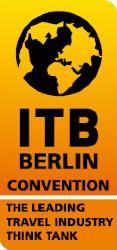ITB Hospitality Day: Integrated Resorts and Reactions in times of crisis
 |
|
Berlin (March 6, 2009). The resort complex of Fleesensee in Germany is the approach to an "integrated resort". Ten years later, this term stands for mega resorts throughout the world. The newer projects, also in Europe, cost billions of Euros and interfere greatly with a region's structure. Is this still sustainable and compatible with environmental aspects? What do the investors have in mind concerning these resort models? The answers will be given at the hotel conference of the ITB, at the fourth "ITB Hospitality Day" on Thursday, March 12. While this panel discussion is strongly concerned with planned projects, the members of the panel discussion "How to React to the Economic Downturn" are trying to understand the current situation and will give positive hints and ideas for everyday life. hospitalityInside.com is a media partner of the Hospitality Day and has organised the conference's agenda. ITB visitors can participate in these panel discussions free of charge and do not have to register for it.
 |
|
| Eric Bello. |
Whether Singapore, Greece, Tuscany or Andermatt - everywhere, these "integrated resorts" are supposed to create new tourism magnets and new jobs. Among the four examples from all over the world, there is also an example of an "urban resort": Marina Bay Sands in Singapore. 2,600 new hotel rooms, in front with gigantic shopping malls, congress centres, museums and a casino - they create a town . Erich Bello, Vice President Sales and located in the parent company of Las Vegas Sands in the US, will come and join us in this discussion.
Similar models in rural areas are developing in Europe: the Costa Navarino project on the Western Peloponnese includes ten million square metres of soil - and therefore many local villages as well. How is it possible to create a connection between grown structures and a new resort culture? As in its final stage, Costa Navarino will comprise eleven luxury hotels. Achilles V. Constantakopoulos, Managing Director of Temes SA, explains what his self-supporting, environmentally friendly future resort will look like.
 |
|
| Samih Sawiris. |
Samih Sawiris, the Egyptian entrepreneur behind the mega resort in Swiss Andermatt, will probably start building the first hotel this year. His project is - this is the business concept - deliberately located in a structurally week region. As he has to create a demanding but seasonally independent leisure time programme does not depend on the weather, he will also enlarge the ski area for example. He will talk about his idea of balancing environmental awareness and promoting tourism.
Finally, Karl Pojer, Group Executive Management of the TUI AG/TUI Hotels & Resorts, is representing the "small Fleesensee". The tour operator has undergone further development as well, and the Castelalfi project in Tuscany, which is currently under construction, is to become much larger.
 |
|
| Karl Pojer. |
Here, an Medieval castle will be integrated into the new resort and the new part is supposed to look like the old part... Poje is very sceptical as to whether such projects are possible in other regions of the world. Of course, he is convinced about the success of his own project.
Discussion host Klaus Lengefeld, Senior Advisor for Tourism and Sustainable Development of the German Technical Cooperation Agency (GTZ), will ask important and critical questions as he travels a lot and is very experienced in international projects. The panel discussion entitled "Integrated Resorts. An evolution towards sustainability" is taking place on Thursday, from 3.30 pm to 4.30 pm in Hall 7.1b, Auditorium London.
Reacting in the crisis - Three hotel managers and one consultant show possible directions
 |
|
| Stephan Gerhard. |
The last panel discussion of this year's ITB Hospitality Day will be dedicated to one issue, which has repeatedly been broached in specialist topics: the crisis. What can be done if the economic downturn is so global and extensive? Are there still niches where turnovers can be created? Representatives of Accor, Falkensteiner and Choice Hotels say yes. Moreover, Stephan Gerhard, who has insights into the consulting and operating business through his company, is not looking into the present and the future pessimistically.
 |
|
| Marc Hildebrand. |
Marc Hildebrand, since last summer CEO Accor Germany, will participate in the ITB panel for the first time. And it will be interesting to see what signals are sent by Germany's largest hotel chain. CEO Erich Falkensteiner will surely share Marc Hildebrand's opinion, "not deciding everything wholesale". Falkensteiner Michaeler Tourism Group, based in Vienna, belongs to the hotel groups with a strong orientation towards Southern and Eastern Europe.
 |
|
| Erich Falkensteiner. |
The portfolio of the hotels is still young; but will expansion continue without slowing down? Forecasts are becoming difficult but not impossible. Falkensteiner creates short-term offers for stimulating the turnover too.
Hans-Dieter Schiller, Vice President European Operations, sees the crisis as an opportunity as well: as it increases the interests of non trade-bound hotels in franchise businesses. There are opportunities to intensify sales and marketing for franchising partners too. At the ITB, Schiller is presenting the latest survey action of Choice in this context.
The panel will be hosted by Prof. Dr. Christian Buer, Dean at the Heilbronn University, lecturer for hospitality management with many years of experience in the hotel industry.
 |
|
| Hans-Dieter Schiller. |
The panel discussion on "How to React to the Economic Downturn. Does it still make sense to rely on forecasts? Are there any concepts that can be applied in a cyclical downturn?" starts on Thursday, March 12, 2009, at 4.45 pm and concludes the fourth ITB Hospitality Day after a 60-minute discussion.
The entire day's programme is available following this link. / red
To print this article you have to be registered and logged in for newsletter, visitor or subscription.





